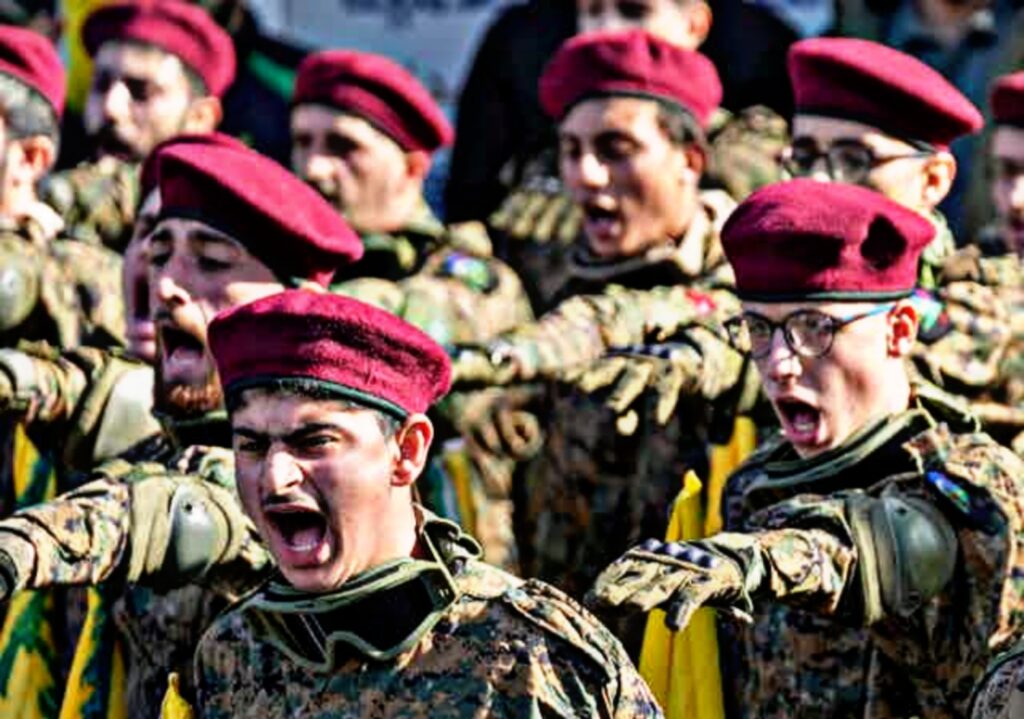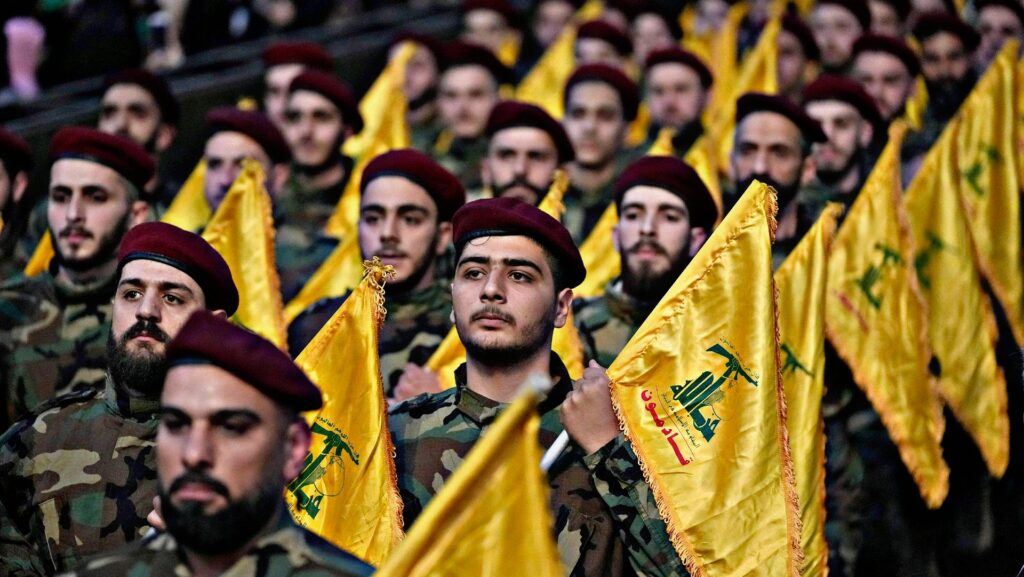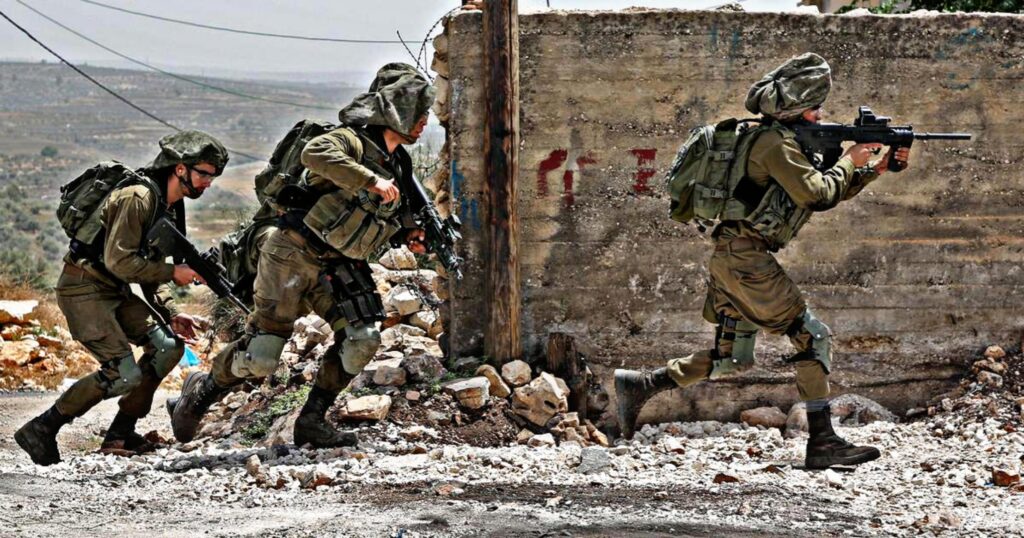Who is Hezbollah?

Hezbollah (“Party of God”) is a Shiite Islamist political and militant group based in Lebanon, formed in the early 1980s with support from Iran during the Lebanese Civil War. Initially, its main objective was to resist Israeli occupation in southern Lebanon, and over time, it has evolved into a powerful paramilitary force and political entity. Its ideology is heavily influenced by the Iranian Revolution and the teachings of Ayatollah Khomeini, advocating for the establishment of an Islamic state in Lebanon.
Key Aspects of Hezbollah:
Military Wing: Hezbollah operates a well-trained militia considered one of the strongest non-state actors in the Middle East. It has fought several conflicts with Israel, notably in the 2006 Lebanon War, and it remains a significant force in the ongoing Israel-Hezbollah hostilities. Its military wing is also involved in conflicts outside Lebanon, particularly in Syria, where it supports the Assad regime.
Political Role: Hezbollah is also a major political party in Lebanon. It holds seats in the Lebanese parliament and has ministers in the government, giving it significant influence over Lebanese politics. Its political legitimacy is bolstered by its provision of social services, including healthcare and education, particularly to Lebanon’s Shiite community.
Foreign Support: Hezbollah receives substantial financial and military backing from Iran, which views the group as a key element of its regional strategy to project influence, particularly against Israel and Western interests.
Terrorist Designations: Hezbollah’s militant activities, especially its attacks against Israeli and Western targets, have led many countries, including the United States and Israel, to designate it as a terrorist organization. However, its dual role as both a militia and a political party complicates its classification, with some countries distinguishing between its political and military wings.
Regional Influence: Beyond Lebanon, Hezbollah is involved in wider regional conflicts, including in Syria and Iraq, often aligned with Iranian interests. It also has a strong anti-Israel stance, aiming for the destruction of the Israeli state.
Hezbollah’s role in Lebanon and the wider region makes it a central player in Middle Eastern geopolitics, often acting as a proxy for Iran in its rivalry with Israel and the West
What is The main Cause of Hezbollah's War with Israel?

The conflict between Hezbollah and Israel stems from a combination of historical, political, territorial, and ideological factors. Some of the main causes include:
1.Israeli Occupation of Southern Lebanon (1982-2000):
- The root of Hezbollah’s conflict with Israel traces back to Israel’s invasion of Lebanon in 1982 during the Lebanese Civil War. Israel occupied southern Lebanon to combat the Palestinian Liberation Organization (PLO) and create a security buffer zone.
- Hezbollah was founded in response to this occupation, with the goal of expelling Israeli forces from Lebanon. Even after Israel withdrew in 2000, tensions remained.
2. Shebaa Farms Dispute:
- Although Israel withdrew from most of southern Lebanon in 2000, Hezbollah continued to justify its armed resistance due to the unresolved status of the Shebaa Farms area, a small strip of land claimed by Lebanon but occupied by Israel (though Israel and the UN consider it Syrian territory, occupied by Israel since 1967). Hezbollah uses this dispute as a pretext to continue its military activity against Israel.
3. Support for the Palestinian Cause:
- Hezbollah has consistently positioned itself as a champion of the Palestinian struggle against Israeli occupation. The group supports Palestinian factions in Gaza and the West Bank, providing political, military, and financial assistance. Hezbollah’s opposition to Israel is driven by its desire to see the end of the Israeli occupation of Palestinian territories and the establishment of a Palestinian state.
4. Iranian and Syrian Influence:
- Hezbollah is backed by Iran and Syria, both of which have their own grievances with Israel. Iran, in particular, provides significant financial and military support to Hezbollah. Hezbollah’s opposition to Israel aligns with Iran’s broader goal of challenging Israeli and U.S. influence in the region.
5. 2006 Lebanon War:
- The most significant outbreak of violence occurred in 2006, when Hezbollah captured two Israeli soldiers in a cross-border raid. This escalated into a full-scale war, with Israel launching a military campaign in Lebanon. The war resulted in significant casualties and destruction but ultimately ended in a stalemate. The 2006 conflict further deepened animosities between the two.
6. Ideological and Religious Factors:
- Hezbollah is an Islamist Shia organization, while Israel is a Jewish state. Hezbollah rejects the existence of Israel and has called for its destruction. Its leader, Hassan Nasrallah, has often referred to Israel as an illegitimate state, fueling further animosity.
In summary, Hezbollah’s conflict with Israel is driven by a combination of territorial disputes, opposition to Israeli policies toward Palestinians, resistance to Israeli influence in Lebanon, and broader regional power struggles influenced by Iran and Syria.
What Action has Israel taken so far against Hezbollah?

Israel has taken a range of actions against Hezbollah over the years in response to its activities and as part of their broader conflict. These actions include military operations, intelligence campaigns, targeted assassinations, airstrikes, and political moves. Below are the key actions taken by Israel against Hezbollah:
1. Military Invasions and Operations:
- 1982 Invasion of Lebanon:Israel invaded Lebanon in 1982 during the Lebanese Civil War to drive out the Palestinian Liberation Organization (PLO) and prevent cross-border attacks. This occupation led to the formation of Hezbollah as a resistance movement.
- Operation Grapes of Wrath (1996):Israel launched this operation in response to Hezbollah’s rocket attacks. It involved heavy air and artillery strikes on Hezbollah positions in southern Lebanon, but it also caused civilian casualties, leading to an international outcry.
- 2006 Lebanon War: Following Hezbollah’s cross-border raid that resulted in the capture of two Israeli soldiers, Israel launched a large-scale military campaign. The war involved airstrikes, a ground invasion, and naval blockades. Despite Israel’s military superiority, Hezbollah was able to withstand the assault, leading to a stalemate. Both sides suffered significant losses, and much of Lebanon’s infrastructure was damaged.
2. Airstrikes and Targeted Operations:
- Airstrikes in Syria: Israel has conducted numerous airstrikes against Hezbollah positions in Syria, especially during the Syrian Civil War. These strikes are aimed at preventing Hezbollah from receiving advanced weapons from Iran and Syria. Israel has targeted weapons convoys and facilities believed to be stockpiling missiles and other advanced weaponry destined for Hezbollah.
- Targeted Assassinations: Israel has been accused of carrying out targeted killings of key Hezbollah leaders and operatives. One of the most notable assassinations was the killing of Imad Mughniyeh, Hezbollah’s top military commander, in a car bomb attack in Damascus in 2008. While Israel has not officially claimed responsibility, Hezbollah and other sources have blamed Israel for the assassination.
3. Border Security Measures:
- Security Fence: After its withdrawal from southern Lebanon in 2000, Israel fortified its northern border with Lebanon, constructing a heavily secured fence, surveillance systems, and military outposts to monitor Hezbollah’s activities.
- Iron Dome Defense System: Israel deployed the Iron Dome missile defense system to protect its northern cities from Hezbollah’s rocket attacks. This system has proven effective in intercepting short-range rockets fired by Hezbollah, although it was originally designed to counter Hamas rockets from Gaza.
4. Cyber Warfare and Intelligence Operations:
- Israel has been involved in extensive intelligence-gathering operations to monitor Hezbollah’s activities. The Israeli intelligence agency, Mossad, along with military intelligence units, actively work to infiltrate Hezbollah’s networks and gather information on its military capabilities.
- There have also been reports of Israel engaging in cyber warfare against Hezbollah to disrupt its communications and operations, though specific details are often classified.
5. Diplomatic and Economic Pressure:
- Israel has worked diplomatically to isolate Hezbollah internationally by pushing for sanctions and convincing other nations to designate Hezbollah as a terrorist organization. Israel has lobbied extensively within the United Nations and other international forums to sanction Hezbollah and its supporters, particularly Iran.
- Economic Warfare: Israel has supported efforts to weaken Hezbollah by pressuring international banking systems to cut off Hezbollah’s financial networks. This includes sanctioning entities connected to Hezbollah’s fundraising, especially through the group’s connection with the drug trade and other illicit activities.
6. Covert Operations and Proxy Warfare:
- Israel has also been involved in covert operations aimed at disrupting Hezbollah’s activities and weakening its influence. This includes the use of proxy groups, such as supporting Christian militias in southern Lebanon during the Lebanese Civil War and maintaining connections with factions that oppose Hezbollah.
7. Prevention of Weapon Transfers:
- significant part of Israel’s strategy involves intercepting weapon shipments intended for Hezbollah, primarily from Iran. Israel has conducted several airstrikes and maritime operations to prevent advanced weapons, such as precision-guided missiles, from reaching Hezbollah in Lebanon.
8. Preemptive Strikes:
- Israel often engages in preemptive strikes against Hezbollah’s positions and infrastructure, particularly when it believes Hezbollah is amassing significant weaponry. These strikes have included bombing arms depots, rocket launchers, and other military infrastructure.
9. Operations During the Syrian Civil War:
- Hezbollah became heavily involved in the Syrian Civil War, fighting alongside Syrian government forces. Israel viewed Hezbollah’s involvement as an opportunity to strike Hezbollah’s convoys and installations in Syria, taking advantage of the group’s exposure in the conflict.
In summary, Israel’s actions against Hezbollah have been a mix of direct military confrontations, intelligence operations, targeted airstrikes, assassinations, border security enhancements, and diplomatic efforts. Despite these efforts, Hezbollah remains a potent military force, with significant influence in Lebanon and a robust arsenal of rockets and missiles.
